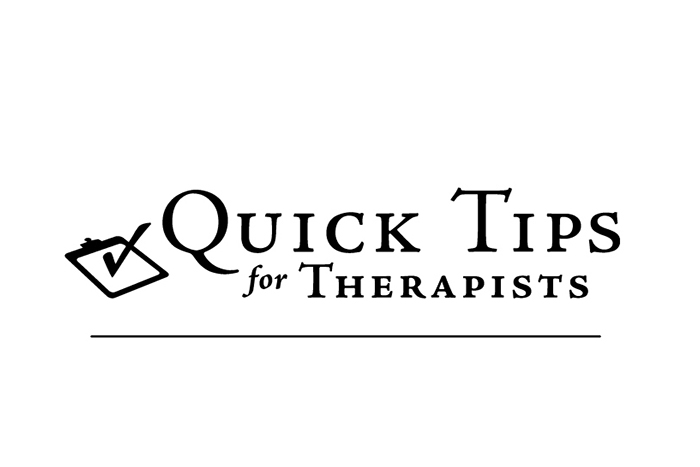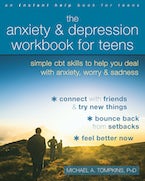By Michael A. Tompkins, PhD, ABPP
What therapist who works with teens hasn’t heard the well-worn phrase, “I don’t know,” accompanied by a shoulder shrug? Understanding your teen client’s “I don’t knows” often comes down to one of the following:
- I don’t know means I don’t know: Teens have young brains which means they don’t always know what they’re thinking or feeling. To help with this problem, unpack several recent instances of the problem. On a whiteboard or piece of paper, draw three circles (thoughts, feelings, behaviors). Focus on a specific situation in which the teen was feeling overly anxious or depressed. If the teen cannot recall the thoughts associated with their feelings, suggest thoughts that make sense given your understanding of the teen and their issues: “Some of my other teen clients who are anxious about public speaking think that they’re going to make a mistake and embarrass themselves. Did you have a thought like that?” Continue this process until the teen can quickly offer a thought when asked about a specific situation, “What was going through your mind then?”
- I don’t know means I don’t want to say: This is a more complicated situation and often depends on the maladaptive beliefs that teens have about themselves or others. For example, teens who believe that they’re stupid may not answer your questions because they fear they’ll answer wrong. Teens who believe people are critical may not answer your questions because they fear you’ll criticize them. To handle these situations, offer your hypotheses: “I know that people have been hard on you. I’m wondering if you worry that I’ll be hard on you too if you tell me what’s going on?”
Michael A. Tompkins, PhD, ABPP, is a board-certified psychologist in behavioral and cognitive psychology. He is codirector of the San Francisco Bay Area Center for Cognitive Therapy, and is a faculty member of the Beck Institute for Cognitive Behavior Therapy. Tompkins is author or coauthor of fifteen books, and presents to national and international audiences on cognitive behavioral therapy (CBT) and related topics. His work has been highlighted by media outlets, including in The New York Times, The Wall Street Journal, on television (The Learning Channel, A&E), and on radio (KQED, NPR).



 2024 Peace Playbook: 3 Tactics to Avoid Clashes with Your Partner
2024 Peace Playbook: 3 Tactics to Avoid Clashes with Your Partner